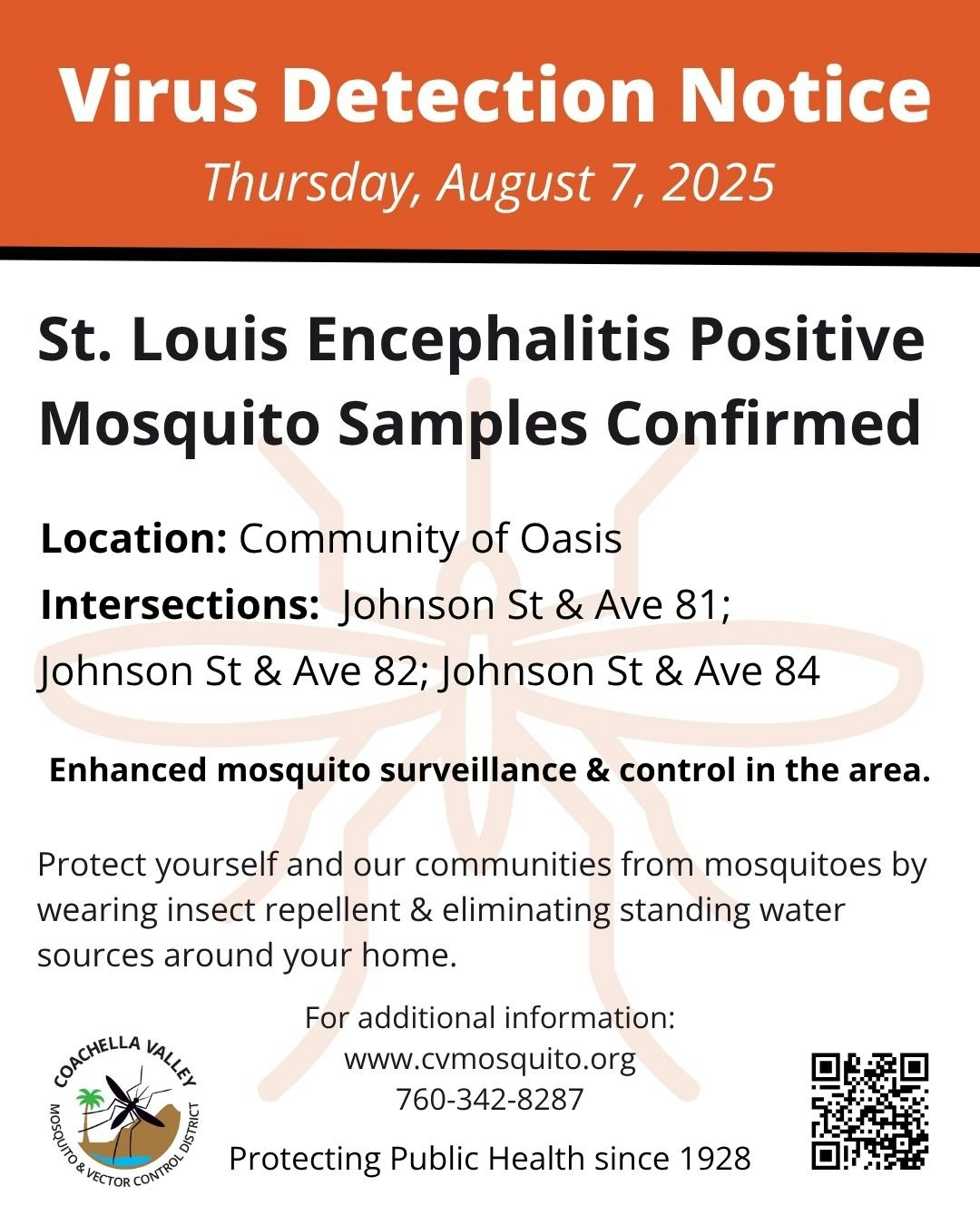Mosquitoes in Oasis Test Positive for St. Louis Encephalitis Virus
Coachella Valley, Ca: Mosquito samples collected in the community of Oasis tested positive for St. Louis Encephalitis virus (SLEV), marking the first detection of the virus in Oasis for 2025. The positive samples were collected near the intersections of Johnson Street and Avenue 81; Johnson Street and Avenue 82; and Johnson Street and Avenue 84. These three samples bring the total number of mosquito samples testing positive for mosquito-borne viruses in the Coachella Valley to five so far this year.
“Detections like this should serve as a reminder to wear insect repellent when outdoors,” said Robert Gaona, Public Information Manager for the District. “Repellent with at least thirty percent of an active ingredient like DEET, picaridin, oil of lemon eucalyptus, or IR3535”.
No human cases of SLEV have been reported this year in the Coachella Valley or the state of California. While there is no human vaccine for the virus, residents are urged to take the following precautions to reduce their risk of mosquito bites and mosquito-borne diseases:
- Dump and drain standing water around homes where mosquitoes can breed
- Use EPA-registered insect repellents when outdoors, especially at dawn and dusk
- Ensure window and door screens are in good repair
- Report mosquito problems to the District
In response to the positive mosquito samples, the District is deploying additional mosquito control technicians to the affected area and will conduct targeted treatments, including truck mounted adulticide applications, to reduce mosquito populations and help prevent further spread of the virus.
About CVMVCD
The Coachella Valley Mosquito and Vector Control District is a special district serving the Coachella Valley since 1928. The District’s mission is to protect public health with our communities through proven scientific, educational, and sustainable vector control programs.
About St. Louis Encephalitis Virus.
SLEV spread when a female mosquito bites an infected bird. The mosquito then can become a carrier and transmit the virus to people. Most infected people will have no symptoms. Others will develop fever, headaches, and body aches; hospitalization is required in some cases, and in rare cases, death occurs. People with symptoms should contact their health care provider.
Second SLEV positive PR Spanish.pdfSecond SLEV positive Press Release.pdf
